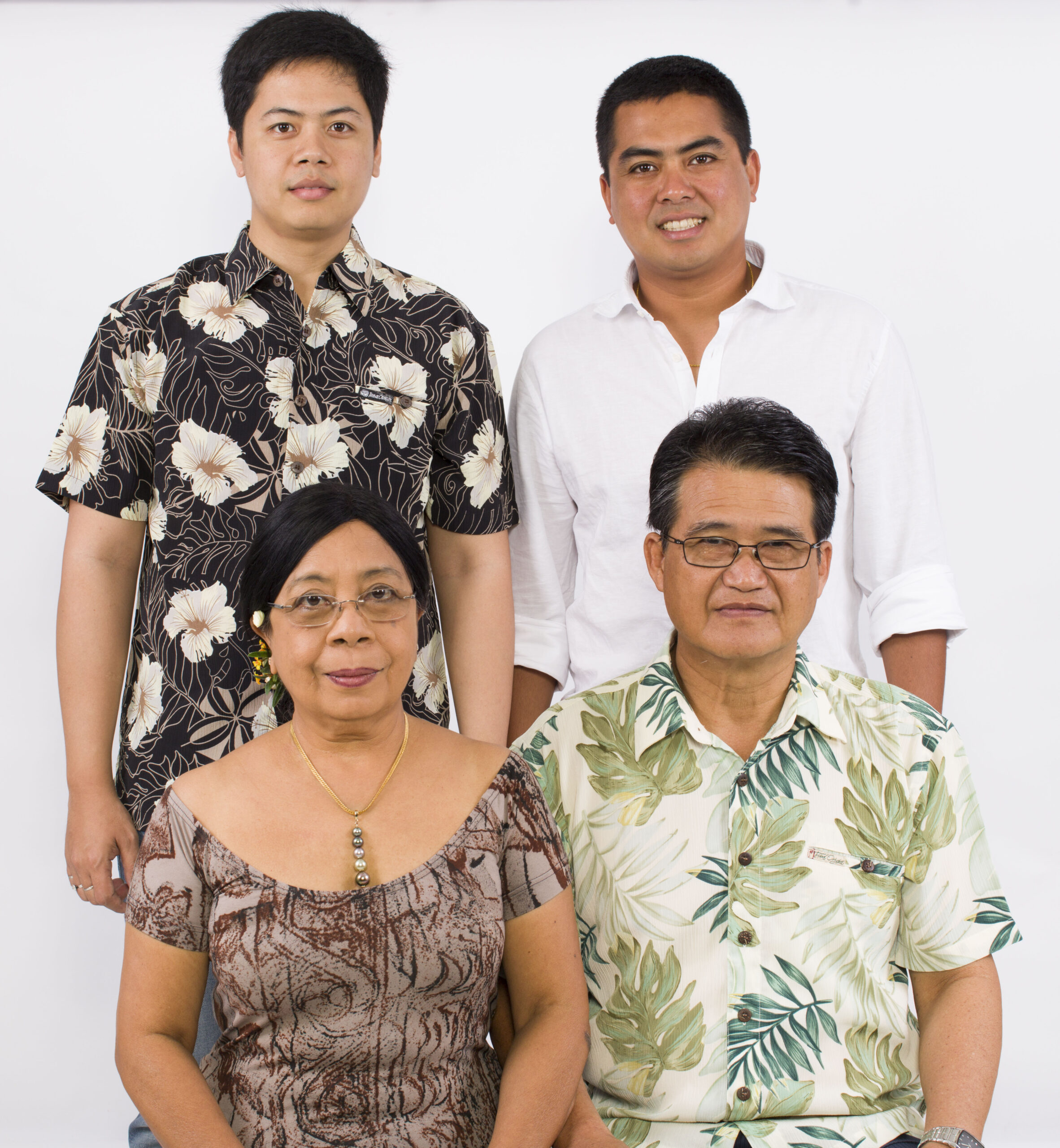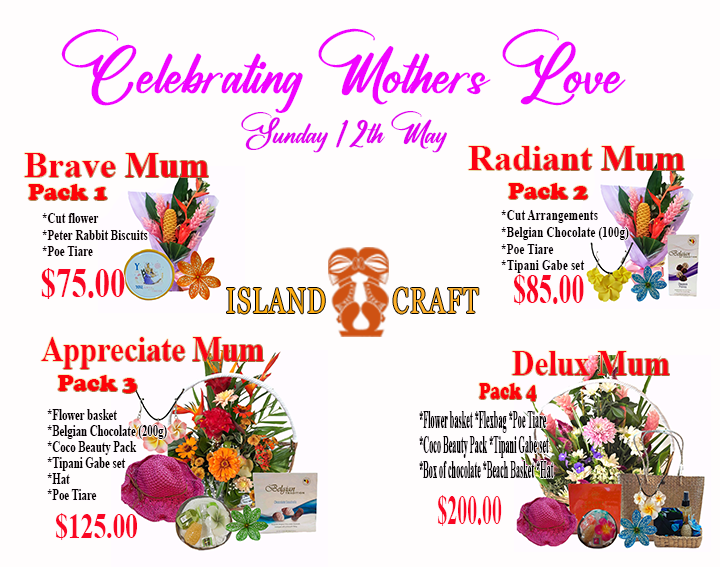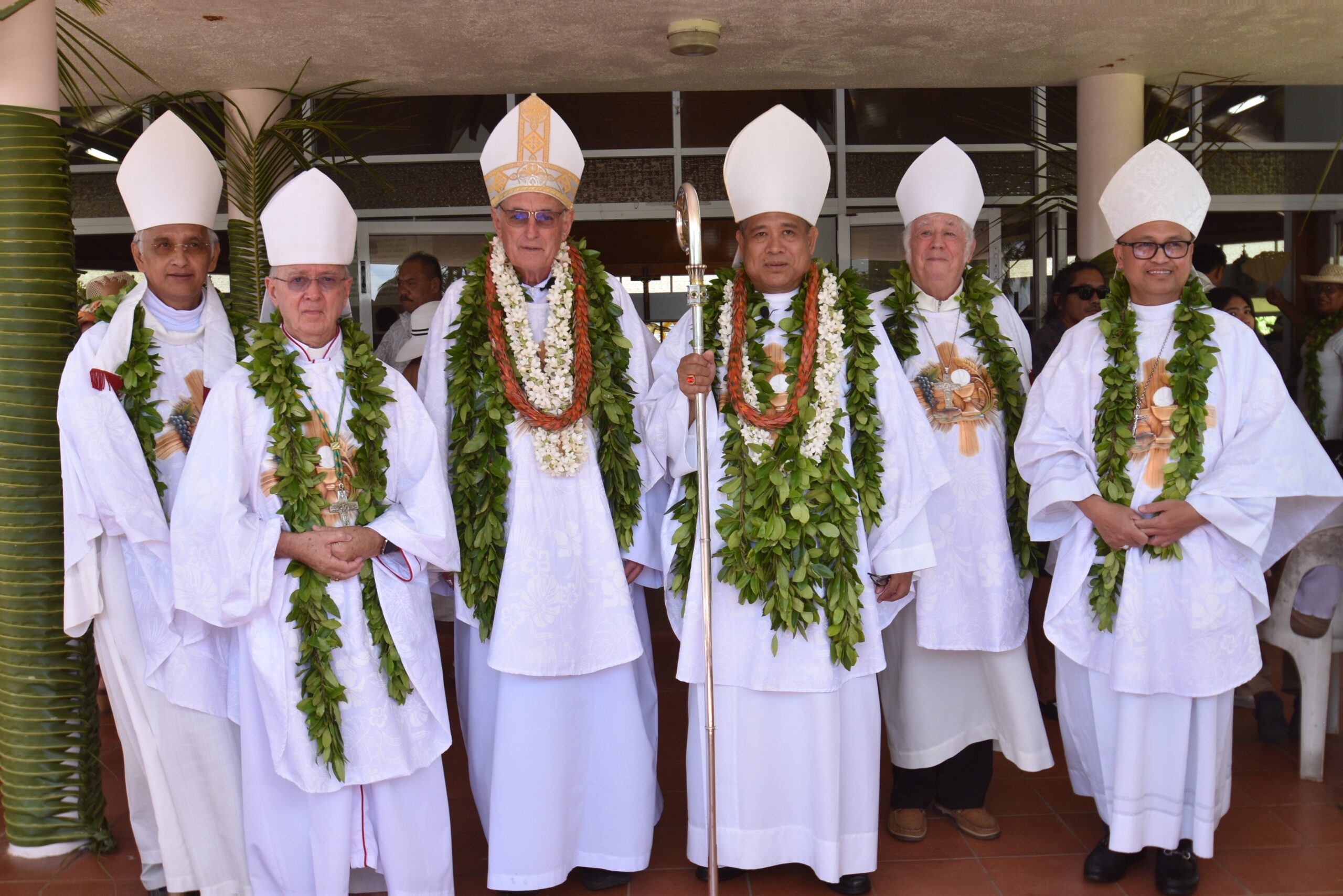Decades of dedication: Beloved doctors bid farewell to Cooks
Sunday 24 December 2023 | Written by Joanne Holden | Published in Features, Weekend

Husband and wife, doctors Yin Yin May and Zaw Myo Aung, are retiring after more than 30 years serving the Rarotonga and Pa Enua communities. They are pictured with their children Ngi Ngi Zaw and Phyo Maung Thaw. SUPPLIED/23122236
After more than 30 years treating the Cook Islands community and making their mark on its health system, doctors Zaw Myo Aung and Yin Yin May are returning to their home country of Myanmar. Joanne Holden reports.
Even with their leaving date just a few days away, the retiring husband and wife have not slowed down – Aung continuing to do his checks on all patients admitted to Rarotonga Hospital, and May tidying up the projects she has overseen as Te Marae Ora (TMO) director of hospital health services.
The couple is set to fly out on Thursday, December 28.
“It’s a very difficult decision, but both of us are not getting younger,” says 73-year-old May.
“We don’t have old age care in this country. We decided we need to go back while we can move our bodies. If one of us died here, the one remaining would be really struggling.”
While one of May’s projects with TMO had been introducing palliative care – given to dying patients to make them and their families more comfortable – at the hospital, she says the health ministry can “assist but not lead” care for elderly people in the Cook Islands.
May and 73-year-old Aung will be moving in with their youngest son, Phyo Maung Thaw, who grew up in the Cook Islands before returning to the South-east Asia country. Their oldest son, Ngi Ngi Zaw, lives in Australia.
The family moved to the Cook Islands in the late 1980s, having decided to leave Myanmar – then known as Burma – at a “very politically unstable” time for the country.
Aung applied to be a medical officer for the United Nations Development Programme, the initiative aimed at ending world poverty posting him to Pukapuka while May stayed in Myanmar with the couple’s two sons.
Aung arrived in Rarotonga on August 16, 1987. After a multi-day boat journey which took him to Aitutaki, Manihiki, Rakahanga, and Nassau, he reached Pukapuka.

Aung was reunited with May and their two sons in Mangaia in 1987 after two years working in Pukapuka. Photo: Supplied/ SUPPLIED/23122235
In 1989, Aung was reassigned to Mangaia where May and their children – aged six and 12 at the time – joined him.
Aung says he did medical rounds twice a week during his tenure in Mangaia, before the island had a telephone service.
“Those who wanted to see me put up a white flag on those days. Then, I stopped at those houses with white flags and saw the patients and prescribed medicines.”

Aung treats patients in Mangaia. Those who wanted to see him put up a white flag on those days. Photo: Supplied/ 23122237/23122238
While both Aung and May had a Bachelor of Medicine and Surgery from the Myanmar Institute of Medicine, May was unable to work as a doctor for the four years and nine months they lived in Mangaia because the island only required one medical officer.
Aung says his wife became “frustrated” with not being employed, so the family decided to return home in 1992 – until the Cook Islands health secretary gave them a call.
“They wanted me to go to Aitutaki,” he says.
“I said, ‘If you give a job to my wife, we will go together. Otherwise, we go home.’”
The family lived in Aitutaki for nine years, before the health secretary asked them to “take over the medical ward” in Rarotonga in 2001, Aung says.
Aung became responsible for all the patients admitted to the hospital, May specialised in obstetrics and gynaecology (OBGYN), and the family gained permanent residence and New Zealand citizenship within a year of their move to Rarotonga.
May says: “We’ve worked with 10 secretaries of health.”
Aung and May have every area of care covered – from medicine, to surgery, to paediatrics, to OBGYN.
When the pair arrived in Rarotonga, they were two of five doctors at the hospital.
More than 20 years later, the number had grown to nine with nurse practitioners now providing support. Doctors mainly hailed from Pacific and Asian nations, with one from South Africa.
“We still need more doctors,” May says.
“We are trying to recruit more, but it’s difficult to retain doctors. The turnover is very high.”
The infrastructure had expanded as well, with X-ray, computerised tomography (CT) scan, and ultrasound machines added to the hospital’s arsenal, she says.
In 2004, the New Zealand Scholarship Scheme awarded May a scholarship to complete a Postgraduate Diploma in OBGYN at the Fiji School of Medicine. A year later, she was appointed head of Rarotonga Hospital’s OBGYN department.
May was promoted to the director of hospital health services in 2017.
The infant mortality rate had dropped from 25 to 7 per 10,000 during her time, and no women had died giving birth in the Cook Islands since 1995.
May says she was meant to retire from the job on October 13 this year, but has stayed on to finish a few projects – including helping to organise the roll-out of cervical cancer self-testing kits, an initiative launched on December 15 and expected to start in January.
She has also been wrapping up her work on the Covid-19 vaccine programme and the Cook Islands’ new internship programme with a student from Fiji during her last couple of months with TMO.
Among May’s proudest moments working in women’s health was setting up mammogram screening in the Pacific Island country – first by bringing radiologists from New Zealand to test and then, when that became unsustainable, enlisting the help of a team from Australia.
“They’ve been coming for the past 15 years. They’re able to screen more than 9000 women in the four weeks they are here each year.”
Aung says one of his biggest achievements has been introducing testing children for rheumatic heart diseases in Rarotonga and the Pa Enua, called the Healthy Island Initiative Programme.
“When I arrived, there wasn’t anyone who could do the echo cardiogram. I managed to get a portable machine from Tahiti and started the screening programme in 2016,” he says.
“People came from New Zealand and Australia to help me that first year. We did Rarotonga, Aitutaki, the rest of the southern group. The northern group I did by myself.”
Aung led the screening programme again in 2018, and for a third time in 2023.
“By doing this programme, we can prevent full-blown rheumatic heart disease and valve surgery,” he says.
“I really hope the hospital is able to carry on with this programme after I go, so in the next 20 or 30 years’ time we won’t have anyone with these issues.”









































